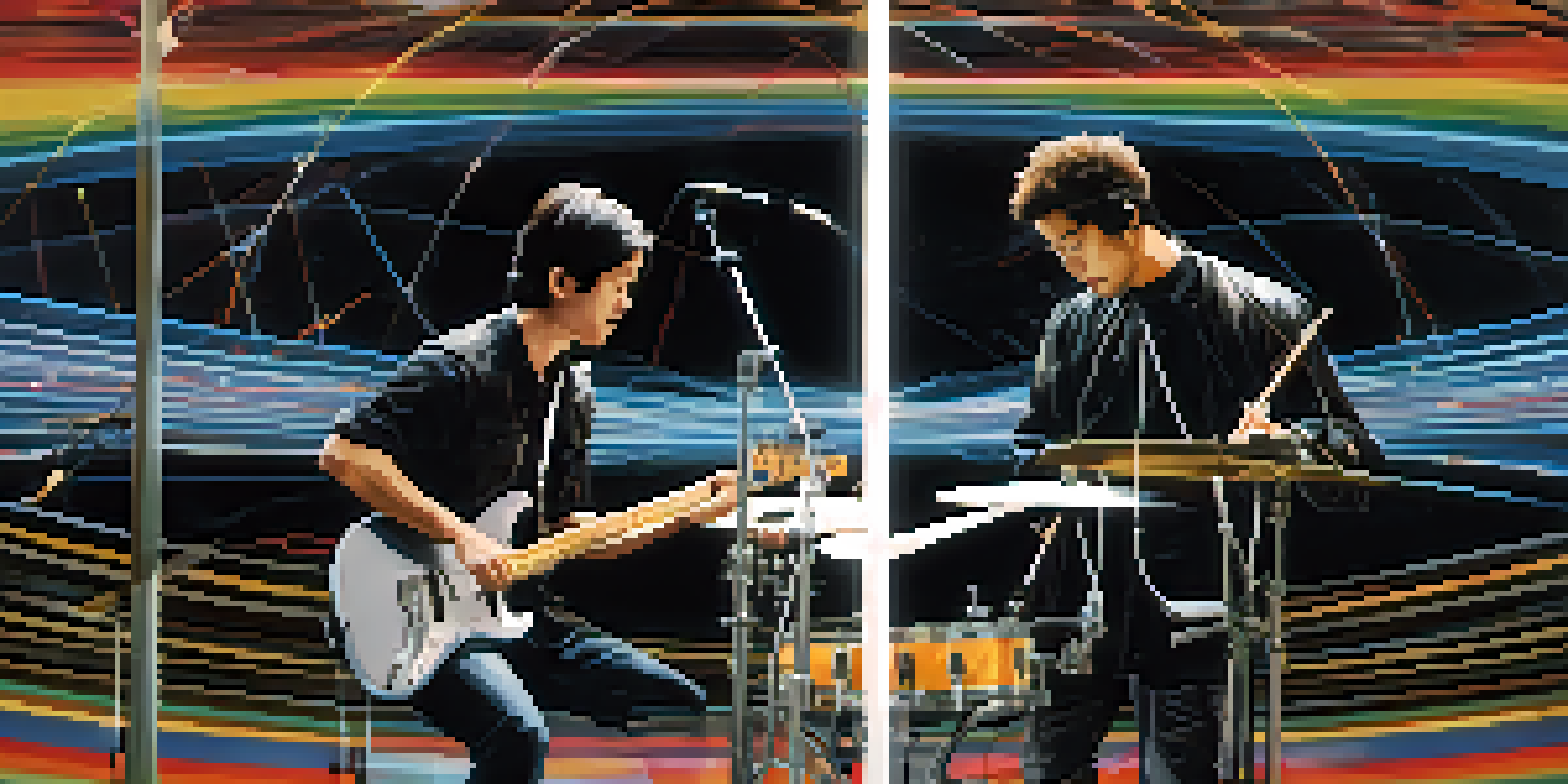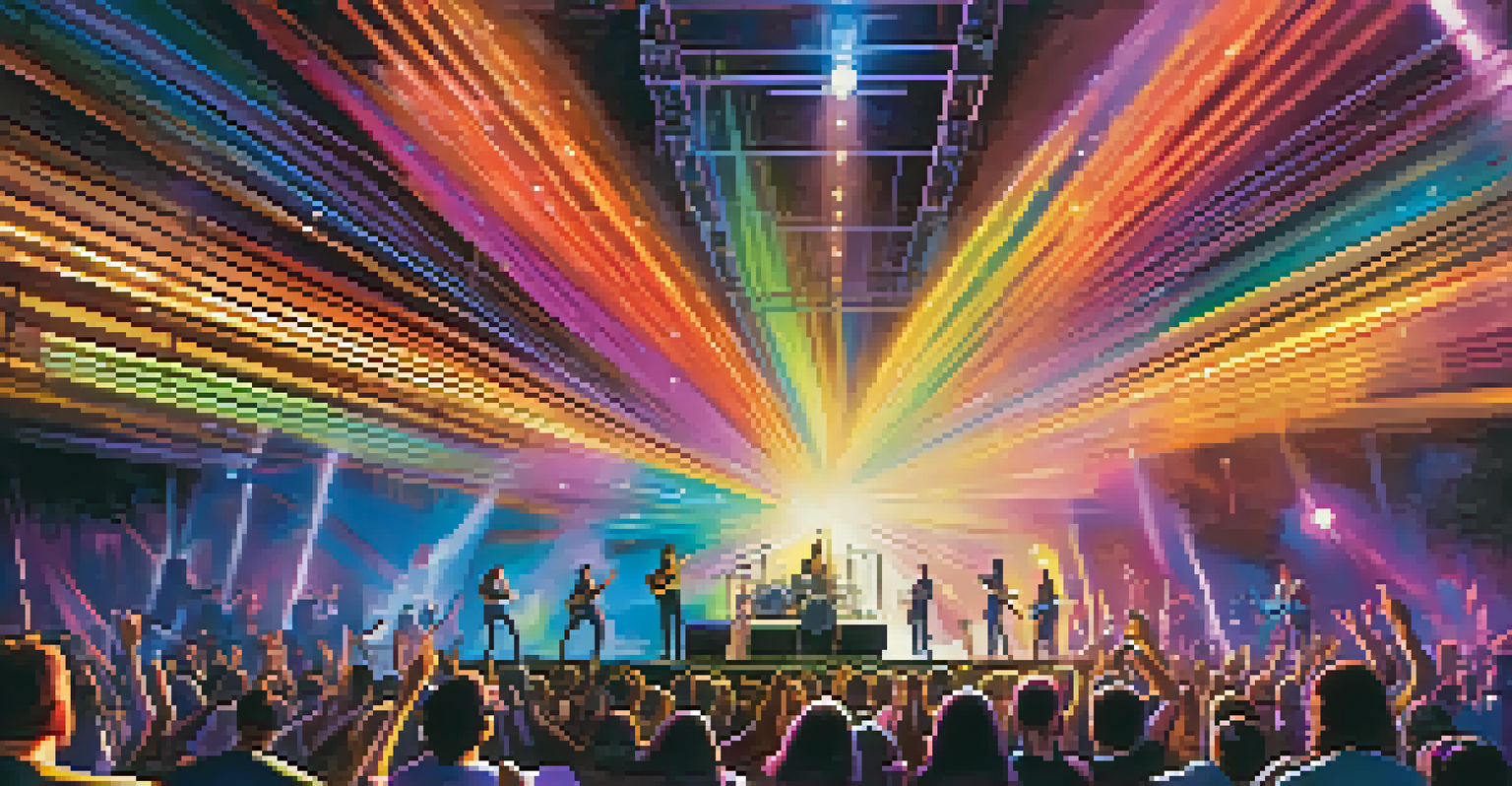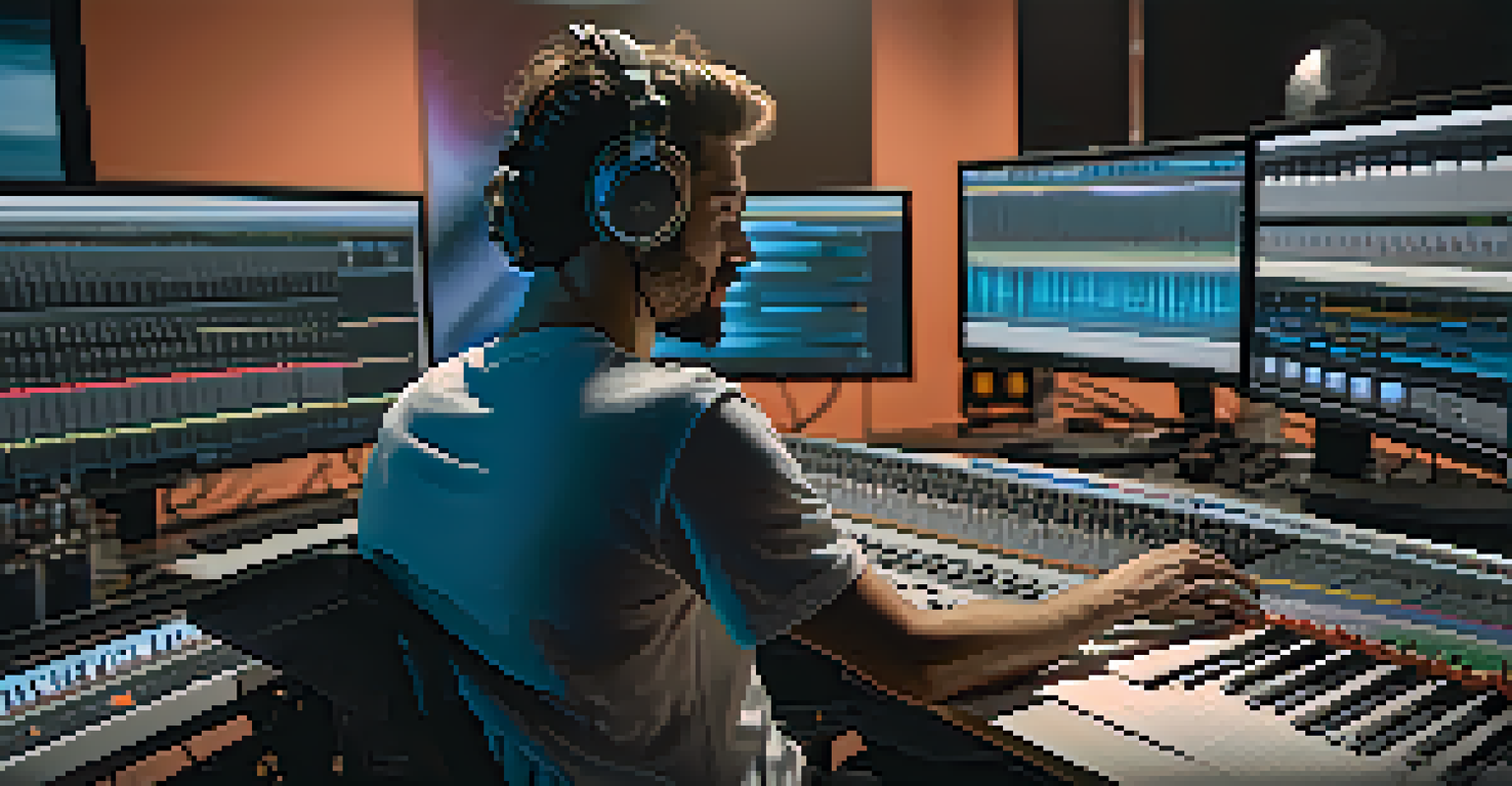AI in Live Music: Enhancing Performances with Technology

The Role of AI in Modern Live Music Experiences
Artificial Intelligence (AI) is revolutionizing live music by offering creative tools that enhance performances. Musicians are now using AI-driven software to create unique sounds, harmonies, and even lyrics, pushing the boundaries of traditional music-making. This integration is not just about technology; it's about fostering innovation and creativity in the arts.
Artificial intelligence is the new electricity.
For instance, AI algorithms can analyze a live performance in real-time, suggesting changes in tempo or key to complement the artist's style. This means musicians can adapt on the fly, creating a more fluid and engaging experience for the audience. Think of it as having a personal assistant who understands your music better than anyone else!
Moreover, AI can predict audience reactions and preferences by analyzing data from previous shows. This allows artists to tailor their performances, ensuring that they connect with their audience on a deeper level. In essence, AI is not just a tool; it's becoming a collaborator in the artistic process.
Enhancing Audience Engagement with AI Technology
AI technology is transforming how audiences interact with live music. From personalized playlists generated by AI to interactive experiences at concerts, fans are now more engaged than ever. Imagine walking into a venue where AI has curated a setlist based on your musical tastes—that's the kind of personalized experience we're beginning to see.

At live shows, AI can enhance the atmosphere through dynamic light shows and visuals that sync with the music. This creates a multisensory experience that captivates audiences, making each performance memorable. It's like stepping into a world where the music and visuals are in perfect harmony, drawing you into the experience.
AI Enhances Live Music Creativity
Artificial Intelligence is revolutionizing live music by providing tools that allow musicians to create unique sounds and adapt performances in real-time.
Additionally, AI-powered chatbots and apps can provide real-time information about the event, such as set times or artist backgrounds. This level of accessibility helps fans feel more connected to the performance and the artists. The result is a more immersive experience that keeps audiences coming back for more.
AI in Music Production: A Game Changer for Artists
The impact of AI isn't limited to live performances; it also extends to music production. AI tools can assist artists in composing, mixing, and mastering their tracks, making the production process more efficient. This technology allows musicians to focus on their creativity while letting AI handle the technical aspects.
The future of music is not about technology; it's about creativity and collaboration with technology.
For example, AI-driven software can analyze a track and suggest adjustments to improve the overall sound quality. This can save hours of trial and error in the studio, allowing artists to spend more time honing their craft. It's like having a knowledgeable friend who offers constructive feedback at every step of the way.
Furthermore, AI can generate entire compositions based on specific genres or styles, serving as inspiration for artists. This capability can lead to fresh ideas and collaborations that artists might not have considered otherwise. In this way, AI is not replacing creativity; it's amplifying it.
Real-time Collaboration: AI and Musicians Unite
Collaboration is key in the music industry, and AI is facilitating new ways for musicians to work together. With AI platforms, artists from different parts of the world can collaborate in real-time, blending various musical styles. This opens up a world of possibilities for creative expression and experimentation.
Imagine a drummer in New York jamming with a guitarist in Tokyo, all while AI assists in syncing their sounds seamlessly. This not only enhances the creative process but also fosters a sense of community among artists. The traditional barriers of distance are being broken down, thanks to technology.
AI Boosts Audience Engagement
Through personalized experiences and interactive elements, AI technology is transforming how audiences connect with live music.
Moreover, AI can help identify promising collaborations by analyzing musical compatibility. It can suggest potential partners based on their styles and past work, making it easier for artists to find their next creative match. In this way, AI acts as a bridge between musicians, enhancing the collaborative spirit in the music industry.
AI and the Evolution of Sound: New Possibilities
One of the most exciting aspects of AI in live music is its ability to explore new sounds. AI can analyze and generate unique audio patterns, enabling artists to experiment with their sonic landscapes. This means musicians can push the boundaries of traditional genres and create something entirely new.
For example, AI can produce sounds that mimic natural elements or generate entirely synthetic noises, giving artists a vast array of options to choose from. This innovation encourages experimentation and can lead to the birth of new musical genres. It's like having an infinite palette of colors to paint your masterpiece.
As artists begin to embrace these new sound possibilities, we can expect to hear more eclectic and diverse music. The fusion of AI-generated sounds with human creativity will likely result in groundbreaking compositions that redefine what we consider music. The future of sound is here, and it's powered by AI.
Challenges of Integrating AI in Live Music
While the benefits of AI in live music are evident, there are also challenges to consider. One concern is the potential loss of the human touch in music. Some purists argue that relying too heavily on AI can dilute the emotional connection that live performances traditionally offer. It's important to strike a balance between technology and artistry.
Another challenge is the technical aspects of implementing AI during live shows. Artists and their teams need to ensure that the technology runs smoothly, as technical glitches can disrupt the flow of a performance. This requires not only investment in technology but also in training and preparation.
AI Fuels Collaboration Among Artists
AI platforms enable real-time collaboration between musicians worldwide, fostering creativity and breaking down geographical barriers.
Moreover, there is the question of ownership and copyright when it comes to AI-generated music. As AI continues to evolve, the legal landscape surrounding music creation needs to keep pace. Addressing these challenges will be crucial for the successful integration of AI in live music.
The Future of AI in Live Music: What to Expect
Looking ahead, the future of AI in live music is bright and full of potential. As technology advances, we can expect even more sophisticated tools that enhance both the creative process and live performances. Artists will continue to explore the possibilities of AI, leading to innovative musical experiences.
Moreover, AI will likely play a central role in shaping the way we experience live music events. From personalized experiences to interactive performances, the concert landscape is set to change dramatically. Fans may find themselves immersed in a world where music and technology coexist seamlessly.

Ultimately, the relationship between AI and live music is one of collaboration. As artists embrace these technologies, they will redefine the boundaries of creativity and connection. The future promises exciting developments that could transform how we listen to and experience music.